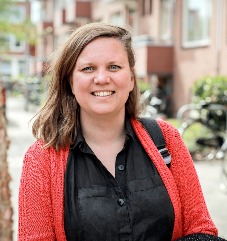Opinion| Restricted choice hampers sustainability

Photo: Henk Veenstra
During the past few years, the government has increased the energy tax on natural gas and lowered it for electricity. In doing so, the government wants to stimulate households to choose for electrical options, such as heat pumps or electric stoves, to generate heat. That's a nice idea, says Marlies Hesselman, lecturer of International Law, but we need to be careful in order to ensure that everyone can participate. In the case of energy, we are not concerned with the decisions people want to make, but with the decisions people can make.
Written down by Marrit Wouda, Corporate Communicatie UG
Prerequisites for a dignified existence
‘As an EU country and a UN member, the Netherlands recognizes several human rights treaties. Those treaties acknowledge the rights to, health, housing, and education, for example. In short: everything that is necessary for dignified existence. This also includes sufficient access to energy: when we are unable to answer this need due to skyrocketing costs, this affects these human rights. It is the government's duty to ensure that everyone can meet their own energy needs. If people cannot meet these needs themselves, resulting in them not being able to function in society, the government should intervene.’
Unhealthy saving
‘During the energy crisis, people have intentionally started saving energy, but have not always done this in a healthy manner. For example, some people only heat their homes when they have people over, or set the thermostat to a maximum of 16 degrees. Even though they are saving energy, this increases the risk of mould and health issues. What is more, the families saving energy like this are not the biggest polluters of the energy crisis. Next to being unhealthy, this makes their efforts unfair and forced.’
Adequate help
‘The government assumes that 'energy poverty’ is part of standard poverty, and thus mostly affects low-income households. However, this is not true. People with higher incomes are also at risk since they are dependent on their landlord, or because they do not have the funds to make large investments in order to make their homes more energy efficient. It is a good idea to step in when energy bills are high, but if these bills are high because homes are poorly isolated, it may be better to ensure adequate housing.’
Allow people to make sustainable choices
‘And that is where we come to the topic of energy transition. People can make use of a number of channels to make their homes more sustainable. But who is able to do so? It is often not the people who are suffering from high energy costs, but home owners who have an investment budget to isolate their homes, switch from natural gas to electrical energy sources, or install heat pumps. Those who need to make their homes more sustainable the most, and could also use financial support in doing so, are often unable to receive subsidies. This is because they are unable to meet the subsidies’ conditions, such as advancing the costs of labour, or contributing financially themselves. It is a good thing that the government wants to stimulate people to make sustainable choices, but everyone should be given a choice.
More news
-
08 December 2025
Colourful Characters: Bert Röling
